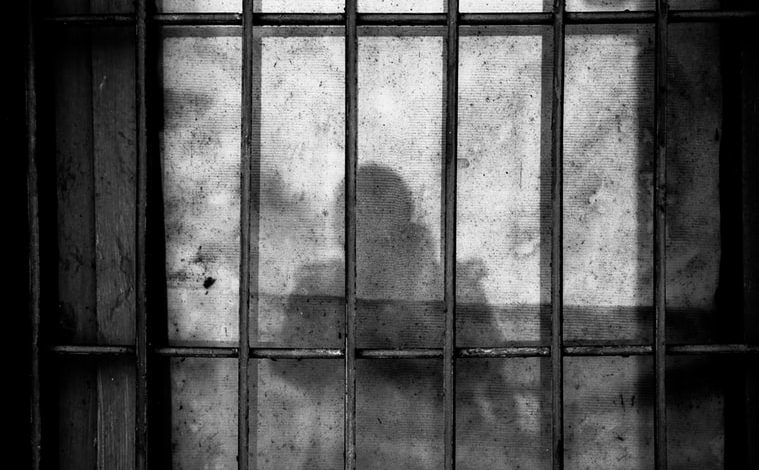Consequences of a Felony Conviction & Your Rights as a Felon

A felony charge results in much more severe penalties than those of misdemeanors. Because of this, punishments are going to be longer, fines will be higher, and there are consequences that will follow through the rest of a felon’s life – such as loss of rights and stigmas. It can be difficult to adjust to life after serving a sentence, especially because returning to normal life may include a probation sentence as well. There are instances in which felons can restore some of their rights, though this process is often difficult. Changing laws throughout the years show changes in leniency when it comes to felony charges and all of the consequences that accompany it. Yet felons can still be upstanding citizens with many rights afforded to them after serving their sentences.
Common Felony Penalties
A felony charge will often come with much harsher punishments than a simple misdemeanor charge; these often have much longer prison sentences and higher fines. Sentencing can vary greatly from state to state depending on their specific laws, but they aren’t generally too far off from the federal sentencing laws. However, the federal government does still permit a death penalty, while a number of states are no longer practicing that. The punishment surrounding a conviction will depend on the crime committed, prior convictions, and whether or not anyone was harmed.

Federal and State Felony Classifications
Felony charges are usually separated into different classes ranging in severity accompanied with punishments respective to that. These are typically sorted into degrees or classes. Federally, these are classified by Classes A – E, outlined in US Code §?3559. Their maximum sentences are:
- Class A– Life imprisonment or death
- Class B– 25 years or more
- Class C– 10 – 25 years
- Class D– 5 – 10 years
- Class E– 1 – 5 years
Most states either use a similar class system, or they separate their felonies into first, second, third, and fourth degrees. These terms, as well as states’ terms that use classes, will vary widely from state to state. This will often depend on how strict the state is with certain crimes, as some states opt for harsher punishments than others. Additionally, some states have abolished the death penalty, so they won’t have death as a sentencing in their classifications.
These charges will also vary greatly based upon the aggravating factors of the crime. For instance, a robbery will have a certain punishment, but a robbery in which a death occured will likely come with a heavier sentencing. Other aggravating factors include minors being involved, previous convictions, whether anyone was harmed, violation of probation, and use of a deadly weapon. Convictions on the third and greater times are much more likely to come with particularly harsh penalties. Finally, whether or not the defendant is repentant may also influence the decision of a judge’s ruling.
Federal Sentences
The federal government also outlines in Section 3559 specific crimes and the types of sentencing that should come with them, mostly the worst of the worst crimes. When handling violent crime cases, it sets the standard that a sentence of mandatory life imprisonment is applicable in cases of a person who has been convicted of two separate violent crimes, or a violent crime and a serious drug crime.
Serious violent felonies are defined by this code as: murder; manslaughter (except for involuntary manslaughter); assault with intent to commit murder; aggravated sexual abuse and sexual abuse; abuse of sexual contact; kidnapping; aircraft piracy; robbery (with a weapon or if someone is harmed); carjacking; illegal firearm possession; arson (if someone didn’t believe it would or it didn’t cause a threat to others); and the attempt to commit any of these.
It specifically outlines that serious violent felonies committed against a child under 14 where they either intentionally kill, inflict serious bodily harm on, or do something knowing it could kill or seriously harm the victim shall be punished by either the death penalty or life imprisonment. Mandatory life imprisonment comes with a second conviction of a federal sex offense with a minor, including sex trafficking, aggravated sexual abuse, abusive sexual contact, sexual abuse resulting in death, sexual exploitation of a child, selling or buying children, coercing a minor into prostitution, and illegally transporting minors. Murdering someone under 18 comes with at least 30 years; kidnapping is at least 25; and inflicting serious bodily harm has at least 10.
Other Punishments
Fines are also a common punishment, oftentimes accompanying a prison sentence. Restitution may also be required in crimes with a victim, whether this be for property damage, hospital bills, or lawyer fees. Drug and alcohol crimes may require drug testing and required rehabilitation, and others may also require community service. Felony crimes will also sometimes come with probation to be served either instead of a full sentence, or to transition after the sentence in prison.
Rights Lost
On top of all of these punishments that are more drastic than a misdemeanor conviction, a felony charge also results in the loss of certain constitutional rights, such as the right to vote, travel restrictions, right to possess a firearm, employment protections, social benefits, and others. Some of these rights lost will vary by state, especially for state felony charges. The federal government is typically less lenient when it comes to these. However, there are ways for rights to be reinstated in some cases, as will be discussed later.
Right to Vote
There are a few rights that are taken from individuals once they get a felony conviction. The most commonly known is the loss of the right to vote, often called felony disenfranchisement. There are over six million Americans that cannot vote because of a felony conviction. Most states have their own policies regarding a felon’s loss of the right to vote, ranging from:
- only being disenfranchised while actually serving their sentence, to
- requiring a pardon or expungement for regaining the right to vote, to
- having to wait a certain amount of time before being able to vote again, to
- never losing the right at all.
You can view your state’s voting policy by referring to this map provided by the American Civil Liberties Union (ACLU):

Travel Restriction
Felons may also lose their passport, most commonly in cases of drug traffickers across countries. Additionally, if there is a felony currently being charged or an outstanding felony warrant, they will not be able to obtain a passport either. They may also be prohibited from entering certain countries with a felony on their record.
Right to Possess a Firearm
The National Firearms Act § 931 states that a felon convicted federally or on a state level of a violent crime cannot possess, purchase, or own any firearms or body armor. This can also sometimes be overturned with a pardon or expungement. In certain circumstances, a petition can be filed to receive these rights again; however, it’s pretty likely that those who are convicted of a violent crime won’t be able to get these rights restored. Additionally, there are particularly strict rules for those that have a domestic violence charge on their record, handled under the Federal Gun Control Act, even just for misdemeanors.
Employment
Regarding employment rights, the US Equal Employment Opportunity Commission (EEOC) holds that there is no law prohibiting an employer from asking about your criminal background. However, they are not allowed to discriminate based on these charges. Specifically, Title VII of the Civil Rights Act gives these employment rights to felons: Employers cannot treat employees with similar criminal records differently based off of race, nationality, color, sex, or religion; Employers can only consider criminal records of applicants when hiring if it actually applies to the reliability, responsibility, and safety of an applicant to do a specific job and doesn’t put African Americans and Hispanics at a significant disadvantage. This requirement means that it’s acceptable not to hire someone with a violent crime on their record to do a job that requires them to hold a weapon, but not to avoid applicants with an old drug conviction for a job in an office. They are, however, required to ask before running a criminal background check and must inform you of the your results and the reason why they cannot consider you based on that, required by the Fair Credit Reporting Act (FCRA).
States differ widely when it comes to their laws regarding employment and criminal records, but you can get details on your state here.
Social Benefits and Others
Felons are not allowed to participate in public programs for housing, federal cash assistance, food stamps, supplemental security income (SSI), or receive federal or state grants. Additionally, they cannot run for office, may have licenses revoked, cannot serve on jury duty for seven years, and are disqualified from the military draft.

Stigma
There are a few aspects of life that may be affected by a felony conviction and the stigma attached to it. While they aren’t always technical legal, some may make judgements on someone’s character based on a criminal record, and felons carry an extra weight. Felons may find themselves being denied applications for apartments or renting houses, being turned down for jobs, or having it affect their child custody. However, Obama’s administration launched an initiative called the Fair Chance Business Pledge, which calls for employers to eliminate their barriers for hiring those with a criminal record, giving second chances and not asking if an applicant has a criminal record on applications. Unfortunately, today’s technology makes it much easier for people to find criminal records online.
In a study conducted in 2019 in the International Journal of Law, Crime and Justice, it was found that “ex-offender labels were associated with negative stereotypes such as perceived dangerousness and incompetence,” showing that there is still a stigma in workplaces about those that hold criminal convictions on their record. Additionally, “Psychological research shows that such responses to stigma can interfere with functioning, and lead to maladaptive behaviors, poor mental health, and difficulty participating in the community,” and often affects an offenders ability to readjust into the community after serving a prison sentence. Efforts are being made to reduce this stigma, but unfortunately, it is still very present in the modern workplace, especially for felony convictions.
Life After Your Time is Served
The Department of Justice (DOJ) reported that about 76 percent of those that serve time in prison end up being arrested again within five years of being released. This often is a result of stigmas or the issues they find after having a conviction on their criminal record. Lack of employment is a large contributor to this, as some often have to turn to illegal practices just to make money. They may also find themselves having a harder time attending college or even finishing high school, which may leave them unable to pursue careers that would help them get back on the right track. Many issues involved with having a criminal record, particularly a felony charge, may contribute to difficulties for a life after serving a sentence.
However, there are resources available to help offenders readjust and become law abiding members of society that can still enjoy a more than comfortable life. With the internet, a simple Google search will result in many websites detailing some of this help, or providing it themselves.
One common resource is a halfway house, which allows individuals with criminal records to learn skills that will help them have an easier time getting back into a normal routine. This support can be essential during this time. Forming positive relationships with mentors and attending Alcoholics Anonymous, Narcotics Anonymous, or other groups if applicable, can also be incredibly beneficial.
The DOJ also reports services for the 10,000 inmates that are released from state and federal prisons every week, such as federal reentry programs, federal funding, and faith based practices.
There is also the chance that an offender may have to serve probation or parole even after being released in order to finish their sentences, and it is essential that violations not be made during that time to avoid having to finish the sentence back in prison.

Restoring Rights
There are some ways that some of these rights may be restored, although they aren’t all completely effective. One is by expungement, which is removing a criminal record so that it can’t be viewed in background checks. This isn’t completely all-covering, however, as it doesn’t apply for certain career checks – like law enforcement, working with children, and professional licenses, and it doesn’t hide all media references of the conviction. It only applies to less severe and generally non-violent crimes and usually only on a first-time conviction. Additionally making it a difficult option, this requires petitions to be filed, court to be held, and various other steps in order to obtain. More often that not, a good lawyer is necessary to prove the reason for an expungement. The most important thing to prove is that restitution and justice have been served. Another method is that, after seven years, a felony is automatically removed from a record after seven years. In some rare cases, felons can be granted governor or presidential pardons. However, all of these are only on the state level, and the federal government currently has no such options for federal felons, probably because federal felony charges are usually much more severe than those that are typically expunged.
As mentioned above, some felons won’t have their voting privileges revoked for forever, so they are restored that way. Other laws involving restoration of rights are governed under 18 U.S.C. § 921, which grants privileges to those who have had their rights restored in this way – whether through expungement or pardon – to have their possession of firearm rights back. Federally, there is no way to do this, but it may vary in possibility state to state.

Felonies often come with some of the punishments reserved for the worst of the worst, so heavy prison sentences and fines, rehabilitation, restitution, probation, and other consequences often come with a felony conviction. Additionally, there are certain rights revoked upon a felony charge that are extremely difficult to get back, and typically only for lesser, first-time convictions on a state level. There are also stigmas that will come with any criminal record, but especially with more violent crimes or those who serve longer prison sentences. This can make it especially hard for felons to readjust back to life outside of prison, as there are many disadvantages that they can run into. The government and non-profit groups offer programs to help ease this process, and halfway houses and other support groups are life changing for some offenders.



